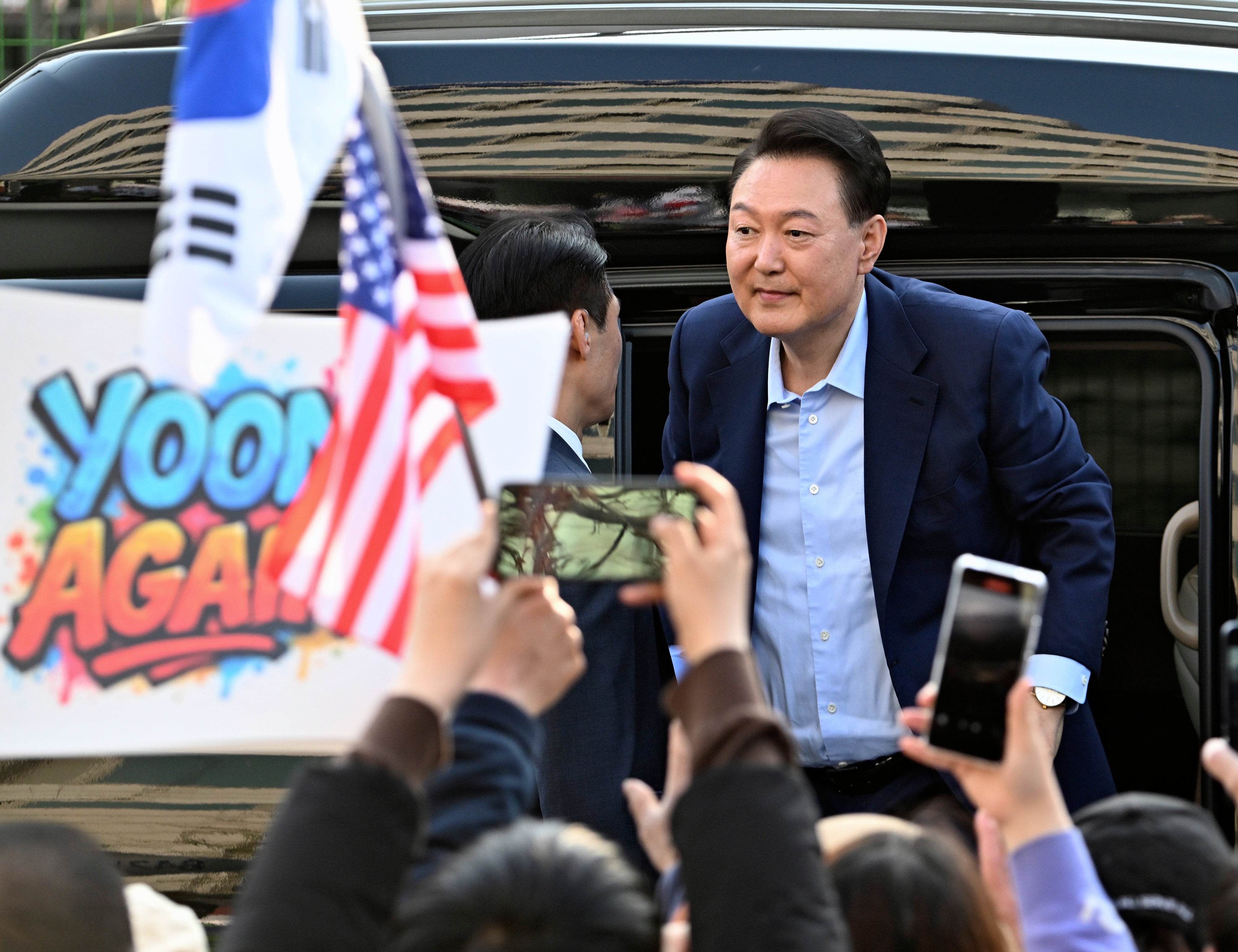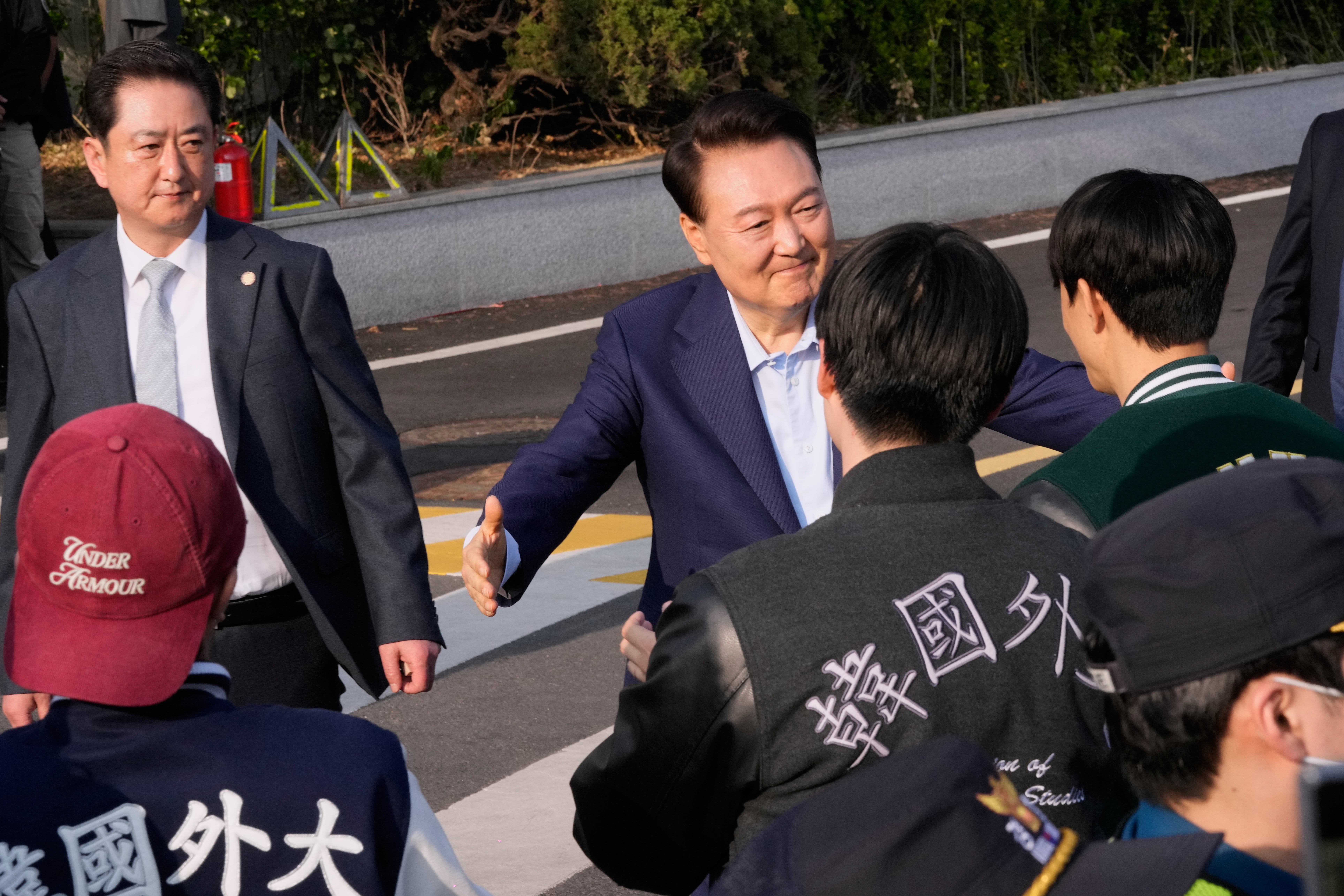ARTICLE AD BOX
South Korea’s ousted president Yoon Suk Yeol rejected charges of leading an insurrection as his high-profile criminal trial began in Seoul, defending his short-lived declaration of martial law as a lawful and symbolic act rather than an attempted coup.
Mr Yoon is accused of leading an insurrection by declaring martial law on 3 December, a decision that prosecutors call illegal and intended to disrupt the nation’s constitutional order.
The martial law declaration, which lasted around six hours before being overturned by the National Assembly, sparked mass protests and a standoff with lawmakers, ultimately leading to his impeachment and dismissal by the Constitutional Court on 4 April.
Mr Yoon, wearing a dark navy suit and red tie, arrived discreetly at the Seoul Central District Court in a black van at 9.48am, using an underground entrance at the request of his security detail.
His appearance at the trial – the first public step in what could become one of South Korea’s most consequential criminal cases – was closed to photographers. The court did not allow filming either.
Prosecutors at the trial accused Mr Yoon of undermining democratic institutions and attempting to disable the country’s legislative functions by invoking martial law without legal justification.
He had “made it impossible for constitutional institutions to exercise their authority based on an unlawful declaration”, they charged, Reuters reported.
Mr Yoon, his nation’s top prosecutor before becoming president, spent about 40 minutes addressing the court, refuting the charges one by one, according to The Korea Times.

He argued the declaration was not a coup attempt, but a symbolic gesture meant to warn the public of the opposition’s actions.
“Martial law is not a coup d’état. This was a peaceful message to the nation,” he said. “I knew this martial law would end within half a day, a day.”
He claimed that the opposition’s decision to impeach more than 20 government officials had posed a threat to governance and martial law was necessary to draw attention to what he described as legislative obstructionism. “Does it make sense to accuse me of insurrection when I lifted the emergency martial law just hours after the National Assembly requested it?” he asked.
Mr Yoon also denied claims that he had ordered the military to forcibly remove lawmakers from the National Assembly.
Two senior military officers, including Cho Sung Hyun from the Capital Defence Command, testified that they had been instructed by a superior to dispatch troops to “drag” legislators out of the parliament.
Mr Yoon rejected their allegations. He told the court he had discussed the matter with former defence minister Kim Yong Hyun but never issued an order to physically intervene in the National Assembly.
The ousted president’s lawyer, Yoon Kap Keun, argued that "if declaring emergency martial law is considered insurrection, then even efforts to protect future generations would be labeled as insurrection, which is an absurd argument. The former president never issued any orders to block the National Assembly or to unlawfully arrest or detain anyone."

Mr Yoon’s impeachment and trial have deepened South Korea’s political polarisation, pitting his conservative supporters against liberal opposition forces.
After his removal as president, Mr Yoon has moved back into his private apartment in Seoul, not far from the courthouse where he made his reputation by securing major convictions, including of another impeached president, Park Geun Hye.
The insurrection charge, one of the most serious in South Korean criminal law, can be punished by life imprisonment or even the death penalty, although the country has not carried out an execution in decades.
Heightened security remains in place around the courthouse, with vehicle access restricted and law enforcement bracing for any unrest as the trial continues.
South Korea will now head to a snap presidential election on 3 June.
The same day as Mr Yoon’s court appearance, Lee Jae Myung, the opposition leader and presidential frontrunner, visited a start-up developing artificial intelligence chips, pledging to boost investment and ease regulations in the technology sector.
Meanwhile, Hong Joon Pyo, former mayor of Daegu and one-time rival of Mr Yoon in their conservative People Power Party, formally announced his intention to run for president again.
Mr Hong declared his bid for the party’s nomination in a social media post, reigniting a conservative leadership contest amid a turbulent political climate.
Additional reporting by agencies.









 English (US) ·
English (US) ·